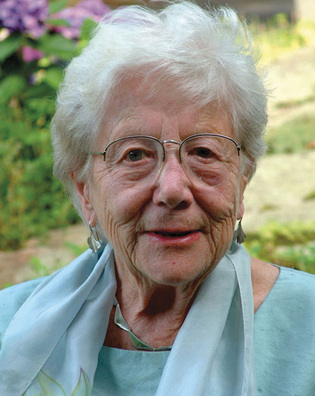 loading
loading
MilestonesHospice pioneer dies at home
 School of NursingFlorence Wald ’41MN, ’56MS, was dean of the nursing school before helping to found the nation's first hospice. View full imageAs dean of the Yale School of Nursing in the early 1960s, Florence Wald '41MN, '56MS, was troubled by the standard end-of-life care in hospitals, where many patients died alone and hooked up to machines. In 1963, she heard a talk by British physician Cicely Saunders, who described a different model for the end of life: a homelike facility offering palliative care for dying patients, where their family members -- including young children -- could come and go freely, and where they could die in peace without much mechanical intervention. Three years later, Wald resigned as dean to bring that model to the United States. Wald, who died at home in Branford, Connecticut, on November 8 at the age of 91, became the principal visionary and organizer of the first freestanding hospice in the United States, Connecticut Hospice. She traveled to England to Saunders's first hospice, St. Christopher's in London, in order to get hands-on experience. Upon her return, she worked with her husband, Henry, as well as a group of committed doctors, nurses, social workers, and members of the clergy to get the project started. Connecticut Hospice began providing home care in 1974 and opened its facility in Branford in 1980. Wald and the board oversaw the design of this building, and they felt strongly that its layout—all on one floor—was integral to the mission of the hospice. Most of the rooms had access to the outdoors, so that patients could have a direct connection with nature. (The Walds unsuccessfully fought the hospice's later move to a former corporate headquarters nearby.) A graduate of Mount Holyoke College, Wald had served in the Signal Corps in World War II before coming to Yale for nursing school. She received many honors for her role in the hospice movement, including an honorary doctorate from Yale in 1995 and, in 1998, a place in the National Women's Hall of Fame. In her later years, she devoted her efforts to bringing hospice care to inmates in U.S. prisons.
The comment period has expired.
|
|